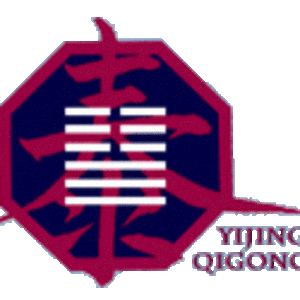
Sign up to save your podcasts
Or




📘📚 Get your FREE E-book on the "Eight verses meditation" by Dr Pang:
https://www.zhineng-qigong-students-hub.com/exploration-of-the-eight-verses-of-zhineng-qigong-meditation-e-book
The Zhineng Qigong practice has its purpose in unity and balance within the mind-body connection. Dr Pang said Qigong shouldn’t be limited to movements, but a reflection in daily life. Sahaja Yuantong integrated diet and food choices with Zhineng Qigong, reflecting wholeness. Qigong and nutrition are interconnected aspects of holistic health. The Zhineng Qigong practice, while not explicitly focused on diet, recognizes the importance of food in overall well-being.
Discovering your true-self through Zhineng Qigong, will expand awareness as this is the source of wisdom even with personal nutrition. The inner master, will become conscious of the effect food can have. Sahaja explains, that our inner-self, awakens as one becomes more attuned to their body's needs through mindfulness. Our reference framework of food often influence our choices, this could stem from childhood or an experience associated with a particular meal, like seeking comfort - Sahaja notes.
Sahaja discusses, flexibility and awareness in dietary choices allow individuals to adapt to their unique requirements. Recalling an acupuncture session, where she was told to increase her protein intake and take a more balanced route with her nutrition. Encouraging mindful eating rather than rigid dietary rules, where missing nutrients can cause trouble and develop into a disease.
Sahaja touches on the inevitable cravings too. As cravings complicate our relationship with food. Recognizing these cravings is essential for distinguishing them from genuine nutritional needs. It’s okay to satisfy a craving in moderation, because even a craving will work it's way out and reset, Sahaja emphasizes the importance of balance and oneness in food choices.
We have to be mindful of what we put into our bodies. Sahaja highlights the significance of aligning food choices with the natural rhythms of life. The concept of macrobiotics (a diet associated with Zen Buddhism), which emphasizes the balance of yin and yang in foods & illustrates how seasonal eating can enhance health. For instance, ever wondered why you prefer lighter meals in summer, while heartier ones in winter? This approach reflects the Daoist philosophy that underpins both Qigong and nutrition, suggesting that food should harmonize with our environment and personal needs.
Mindful moments:
Links & Resources:
Sahaja's other episode:
🎮 Discover Qigong Game: https://www.zhineng-qigong-students-hub.com/discover-qigong/
🎁 Discover the power of Qigong with this easy-to-follow Starter Kit: https://qigong-starter-kit.com/
🎙️🌟Explore more podcasts, events, and resources visit:
https://www.zhineng-qigong-students-hub.com/
Connect on Facebook, Instagram, Youtube
 View all episodes
View all episodes


 By Zhineng Qigong Student's Hub - Torsten Lueddecke
By Zhineng Qigong Student's Hub - Torsten Lueddecke




5
77 ratings

📘📚 Get your FREE E-book on the "Eight verses meditation" by Dr Pang:
https://www.zhineng-qigong-students-hub.com/exploration-of-the-eight-verses-of-zhineng-qigong-meditation-e-book
The Zhineng Qigong practice has its purpose in unity and balance within the mind-body connection. Dr Pang said Qigong shouldn’t be limited to movements, but a reflection in daily life. Sahaja Yuantong integrated diet and food choices with Zhineng Qigong, reflecting wholeness. Qigong and nutrition are interconnected aspects of holistic health. The Zhineng Qigong practice, while not explicitly focused on diet, recognizes the importance of food in overall well-being.
Discovering your true-self through Zhineng Qigong, will expand awareness as this is the source of wisdom even with personal nutrition. The inner master, will become conscious of the effect food can have. Sahaja explains, that our inner-self, awakens as one becomes more attuned to their body's needs through mindfulness. Our reference framework of food often influence our choices, this could stem from childhood or an experience associated with a particular meal, like seeking comfort - Sahaja notes.
Sahaja discusses, flexibility and awareness in dietary choices allow individuals to adapt to their unique requirements. Recalling an acupuncture session, where she was told to increase her protein intake and take a more balanced route with her nutrition. Encouraging mindful eating rather than rigid dietary rules, where missing nutrients can cause trouble and develop into a disease.
Sahaja touches on the inevitable cravings too. As cravings complicate our relationship with food. Recognizing these cravings is essential for distinguishing them from genuine nutritional needs. It’s okay to satisfy a craving in moderation, because even a craving will work it's way out and reset, Sahaja emphasizes the importance of balance and oneness in food choices.
We have to be mindful of what we put into our bodies. Sahaja highlights the significance of aligning food choices with the natural rhythms of life. The concept of macrobiotics (a diet associated with Zen Buddhism), which emphasizes the balance of yin and yang in foods & illustrates how seasonal eating can enhance health. For instance, ever wondered why you prefer lighter meals in summer, while heartier ones in winter? This approach reflects the Daoist philosophy that underpins both Qigong and nutrition, suggesting that food should harmonize with our environment and personal needs.
Mindful moments:
Links & Resources:
Sahaja's other episode:
🎮 Discover Qigong Game: https://www.zhineng-qigong-students-hub.com/discover-qigong/
🎁 Discover the power of Qigong with this easy-to-follow Starter Kit: https://qigong-starter-kit.com/
🎙️🌟Explore more podcasts, events, and resources visit:
https://www.zhineng-qigong-students-hub.com/
Connect on Facebook, Instagram, Youtube

6,828 Listeners

3 Listeners

346 Listeners

257 Listeners

99,258 Listeners

1,463 Listeners

133 Listeners